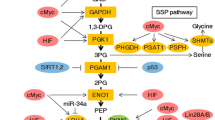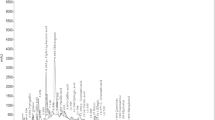Abstract
In this study, the selective cytotoxic activity of methanolic extracts of Saururus chinensis (SCE) was examined on glucose-deprived HT-29 cells. The effects of SCE on 2-deoxy-glucose (2DG) or glucose-free stressed HT-29 cells were evaluated through the MTT reduction assay, morphological observations, and the colony formation assay, in which SCE (5, 10 μg/mL) was found to be highly toxic to HT-29 cells only during glucose-deprived conditions. In addition, the mechanism of selective cytotoxic effects on SCE was assessed by Western blot analysis; SCE suppressed the accumulation of GRP78. Furthermore, apoptotic effects of SCE on glucose-deprived HT-29 cells were identified by Hoechst 33342 staining and flow cytometric analysis. In conclusion, SCE induced apoptosis in HT-29 cells under glucose-deprived conditions by down-regulation of GRP78. Cytotoxic effects on HT-29 cells were only observed during glucose deprivation, suggesting that SCE may be a target for novel therapeutic agents for treating colon cancer under glucose-deprived stress.
Similar content being viewed by others
References
Acker T, Plate KH. A role for hypoxia and hypoxia-inducible transcription factors in tumor physiology. J. Mol. Med. 80: 562–575 (2002)
Hiroyasu Y. Solid tumor physiology and hypoxia-induced chemo/radio-resistance: Novel strategy for cancer therapy: Nitric oxide donor as a therapeutic enhancer. Nitric Oxide 19: 205–216 (2008)
Hwang JH, Kim JY, Cha MR, Park HR. Effect of methanolic extract from silkworm droppings on proliferation and caspase activity in HT-29 human colon cancer cells. J. Med. Food. 10: 467–472 (2007)
Semenza GL. Angiogenesis in ischemic and neoplastic disorders. Annu. Rev. Med. 54: 17–28 (2003)
Harding HP, Calfor M, Urano F, Novoa I, Ron D. Transcriptional and translational control in the mammalian unfolded protein response. Annu. Rev. Cell Dev. Biol. 18: 575–599 (2002)
Park HR, Tomida A, Sato S, Tsukumo Y, Yun J, Yamori T, Hayakawa Y, Tsuruo T, Shin-ya K. Effect on tumor cells of blocking survival response to glucose deprivation. J. Natl. Cancer Inst. 96: 1300–1310 (2004)
Hwang JH, Kim JY, Cha MR, Ryoo IJ, Choo SJ, Cho SM, Tsukumo Y, Tomida A, Shin-ya K, Hwang YI, Yoo ID, Park HR. Etoposideresistant HT-29 human colon carcinoma cells during glucose deprivation are sensitive to piericidin A, a GRP78 down-regulator. J. Cell. Physiol. 215: 243–250 (2008)
Kim R, Emi M, Tanabe K, Murakami S. Role of the unfolded protein response in cell death. Apoptosis 11: 5–13 (2006)
Park HR, Ryoo IJ, Choo SJ, Hwang JH, Kim JY, Cha MR, Shin-ya K, Yoo ID. Glucose-deprived HT-29 human colon carcinoma cells are sensitive to verrucosidin as a GRP78 down-regulator. Toxicology 229: 253–261 (2007)
Philip LM, Ekaterina VBM, Steve FA. Expression of the proangiogenic factors vascular endothelial growth factor and interleukin-8/CXCL8 by human breast carcinomas is responsive to nutrient deprivation and endoplasmic reticulum stress. Mol. Cancer 3: 1–12 (2004)
Suzuki H, Tomida A, Tsuruo T. Dephosphorylated hypoxiainducible factor 1α as a mediator of p53-dependent apoptosis during hypoxia. Oncogene 20: 5779–5788 (2001)
Park HR, Furihata K, Hayakawa Y, Shin-ya K. Versipelostatin, a novel GRP78/Bip molecular chaperone down-regulator of microbial origin. Tetrahedron Lett. 43: 6941–6945 (2002)
Gazit G, Hung G, Chen X, Anderson WF, Lee SA. Use of the glucose starvation-inducible glucose-regulated protein 78 promoter in suicide gene therapy of murine fibrosarcoma. Cancer Res. 59: 3100–3106 (1999)
Lee EJ, Nichols P, Spicer D, Groshen S, Yu MC, Lee AS. GRP78 as a novel predictor of responsiveness to chemotherapy in breast cancer. Cancer Res. 66: 7849–7853 (2006)
Ryoo IJ, Park HR, Choo SJ, Hwang JH, Park YM, Bae KH, Shin-ya K, Yoo ID. Selective cytotoxic activity of Valinomycin against HT-29 human colon carcinoma cells via down-regulation of GRP78. Biol. Pharm. Bull. 29: 817–820 (2006)
Choo SJ, Park HR, Ryoo IJ, Kim JP, Yun BS, Kim CJ, Shin-ya K, Yoo ID. Deoxyverrucosidin, a novel GRP78/BiP down-regulator, produced by Penicillium sp. J. Antibiot. 58: 210–213 (2005)
Ogiso Y, Tomida A, Lei S, Omura S, Tsuruo T, Proteasome inhibition circumvents solid tumor resistance to topoisomerase II-directed drugs. Cancer Res. 60: 2429–2434 (2000)
Ogiso Y, Tomida A, Tsuruo T. Nuclear localization of proteasomes participates in stress-inducible resistance of solid tumor cells to topoisomerase II-directed drugs. Cancer Res. 62: 5008–5012 (2002)
Suzuki H, Tomida A, Tsuruo T. A novel mutant from apoptosisresistant colon cancer HT-29 cells showing hyper-apoptotic response to hypoxia, low glucose and cisplatin. Jpn. J. Cancer Res. 89: 1169–1178 (1998)
Author information
Authors and Affiliations
Corresponding author
Rights and permissions
About this article
Cite this article
Son, ES., Choi, JU., Lee, KJ. et al. Selective cytotoxicity of Saururus chinensis in glucose-deprived HT-29 human colon cancer cells. Food Sci Biotechnol 23, 609–613 (2014). https://doi.org/10.1007/s10068-014-0083-7
Received:
Revised:
Accepted:
Published:
Issue Date:
DOI: https://doi.org/10.1007/s10068-014-0083-7




